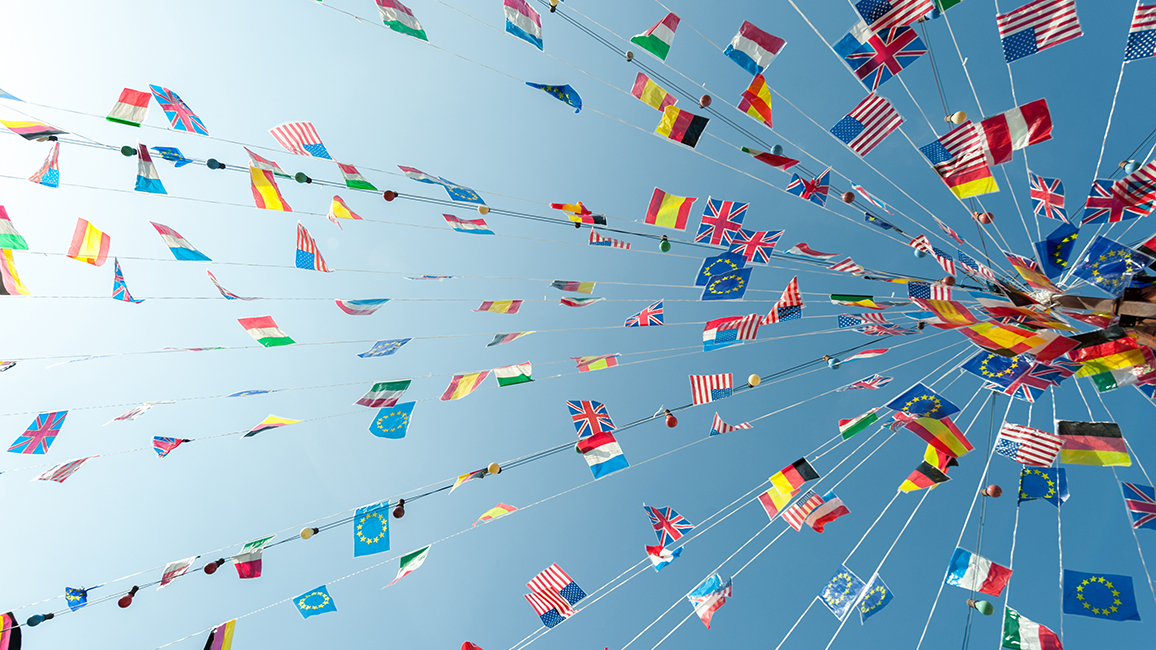Global tensions and systemic rivalries are on the rise in the international context. The freedom of scientific research in Europe and in the European Research Area must be defended and promoted – by means of open, trusting, and at the same time protected collaboration with international partners. International cooperation in research and innovation beyond the borders of the EU is guided by the principle "as open as possible and as closed as necessary".
Field of action 6 in support of a free Europe: ensuring global cooperation is value-based and secure
Global cooperation in research and innovation is directly impacted by the geopolitical challenges of the current geopolitical watershed (Zeitenwende). The response must be to intensify cooperation with like-minded countries in Europe and around the world. In this context, it is important to work with other EU Member States and countries such as Switzerland and the United Kingdom to contribute to preserving the openness of and confidence in the global research system, and to advocate a rules-based order in line with European values. At the same time, researchers must be supported so that they can engage in secure and value-based international collaboration. Germany is seeking to strengthen and expand cooperation with partners around the world who share its values.
In the framework of the Action Plan for the European Research Area, the Federal Government wants to:
a) Advance freedom and security of research in Europe
In order to create transparency and the capacity for evidence-based action, the Federal Government is working towards a monitoring report on freedom of research in the EU, based on the Bonn Declaration on Freedom of Scientific Research. In this way, Germany wants to permanently establish a common understanding of this basic right and better protect freedom of research.
With its toolkit for tackling foreign interference, the European Commission has created a framework to support researchers in weighing up the opportunities and risks of international cooperation. Together with partners who share the same values in the OECD and G7, the Federal Government developed recommendations on protection from foreign interference in 2022. Germany wants to actively bring this impetus at European and international level to the German scientific community.
b) Boost Europe’s global attractiveness for research and innovation talent worldwide
The global competition for the best talent is growing. To attract the best minds to Europe, Germany wants to work with its European partners to promote the European Research Area around the world as the best location for research and innovation – characterised by excellence, freedom of research, good funding of the location, unique research infrastructures and outstanding research partners.
At the same time, the Federal Government wants to offer protection in the European Research Area to foreign researchers from countries where these fundamental values are in danger. To this end, they are supporting the planned initiatives in the context of Horizon Europe for researchers seeking protection, and are continuing to refine corresponding national programmes and information platforms. Germany is supporting the reconstruction of the Ukrainian research landscape, including via German-Ukrainian cores of excellence, with the aim of consolidating Ukraine’s future in Europe.
c) Further develop global cooperation in Europe and make "Team Europe" a reality
The Federal Government is actively participating in the EU working groups to develop a joint approach which brings together purely national activities on scientific and technological cooperation (STC) with countries outside the EU to create a European approach. Germany believes that joint STC activities by "Team Europe" will be more effective than purely national approaches. In this context, Germany is seeking to ensure cooperation on an equal footing in its dialogue with countries from the Global South.
From July 2024 to 2025, Germany will, together with Canada, assume the chair of the Eureka network, in which more than 45 countries promote research and innovation cooperation. In its term as chair, it will actively support research, innovation and transfer with the EU Member States and important partner countries in Europe and around the world.
d) Remain in dialogue with all countries of the world
Global challenges require global solutions. Germany will therefore continue to champion science diplomacy as a tool in future. At European level, it will actively help to shape the development of a European Science Diplomacy Agenda. The Federal Government is contributing to better mutual understanding by participating in the European Commission’s multilateral dialogues on values and principles in research and innovation cooperation with the countries associated to the EU Framework Programme and countries with STC agreements with the EU.


